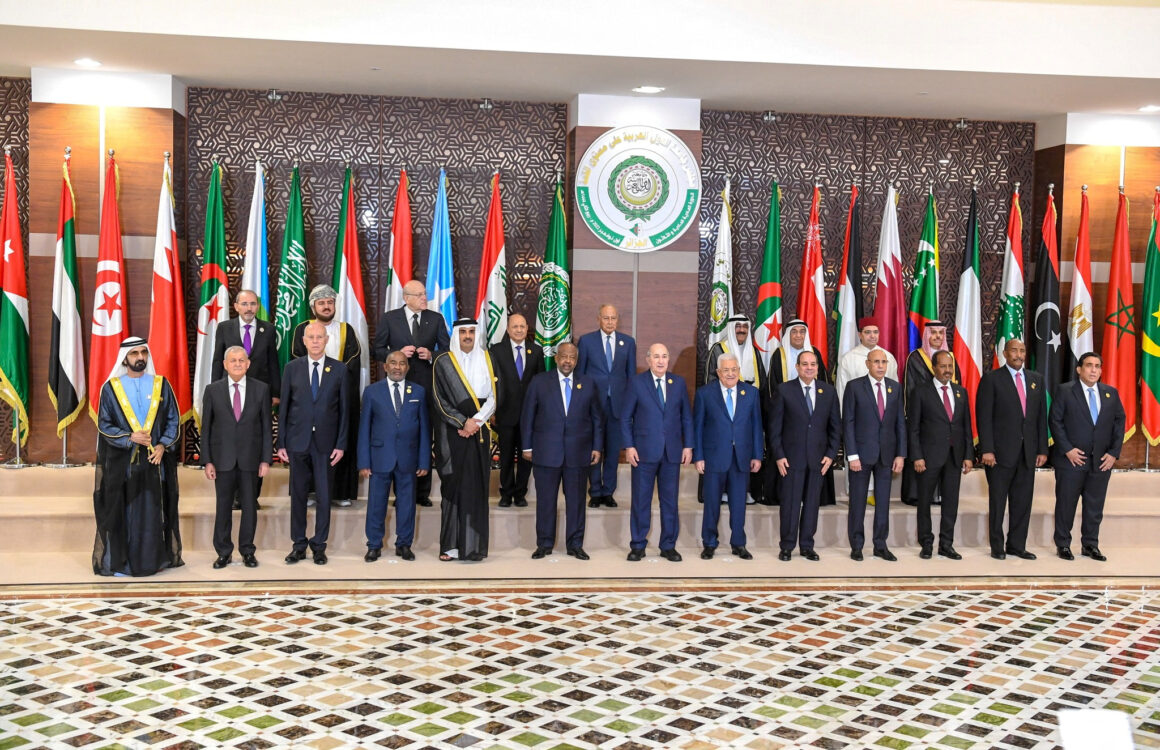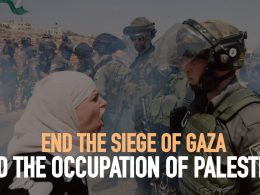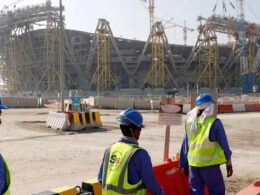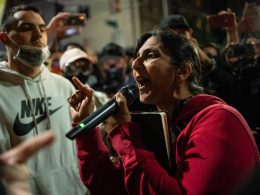By Robert Cosgrave
Five months into the horrifying carnage of the Gaza genocide, with an invasion of Rafah impending, Israeli Prime Minster Netanyahu is insisting that Isreal is prepared to “do it alone” in pursuing its murderous campaign against the Palestinian people. Notwithstanding their mealy-mouthed pleas for restraint, the truth is well known that the Western imperialist powers – in particular US imperialism – have no intention of acting to hold back the genocidal Israeli State from committing more war crimes.
However, many people, including those in Gaza desperately struggling to survive, have asked the question: where are the Arab states in all this? Unfortunately, the indifference of the ruling classes of the Arab world to the destruction raining down on the Palestinians – despite the words of condemnation – is becoming increasingly apparent. Regardless of their historic connections, the Arab ruling classes have no interest in supporting Palestinians in their struggle for liberation.
A history of betrayals
Even before the foundation of the State of Israel, the ruling classes in the Arab world worked to undermine the struggles of the Palestinian people. During the general strike and revolt against British rule in Palestine of 1936, which effectively shut down the country despite massive repression from the British Army and Zionist paramilitaries, the Kings of both Iraq and Jordan were enlisted by British imperialism to cut across the Palestinian struggle. In this task they were more than happy to help, and played no small part in the defeat of the movement.
This was again seen during the Nakba in 1948, which saw hundreds of thousands of Palestinians forcibly expelled from their homes and thousands more murdered in massacres like that at Deir Yassin. The ‘Arab League’, which claimed to fight on behalf of Palestinians, was secretly in negotiations with Israeli leaders, hoping for a more favourable settlement for themselves while leaving the Palestinians out to dry.
The betrayals did not end with the foundation of the Israeli State. For millions of Palestinian refugees, the Arab rulers would treat them brutally inside their own countries. In 1970, the King of Jordan ordered his army to attack the Palestinian Liberation Organisation (PLO) in Jordan, whose presence in the country was felt to be undermining his rule. The Black September massacre saw the Jordanian army butcher 10,000 in PLO encampments and Palestinian refugee camps, with weapons happily provided by the US.
As a result, the PLO would move into Lebanon, where in 1976 – in the midst of civil war – Syrian tanks would roll in and join the extreme-right Lebanese Christian paramilitaries in attacking the PLO and Palestinians.
Normalisation agreements
In 1978, US President Jimmy Carter brokered the Camp David Accords between Egypt and Israel, an agreement that led to “normalisation” of relations between Egypt and Israel – conducted entirely over the heads of Palestinians. In the decades since, Egypt would be joined by more Arab states in such processes of “normalisation” with Israel. Jordan followed suit in 1994, following the Oslo Accords sellout of the First Intifada (the mass Palestinian uprising against Israeli occupation). In 2020 four further states – Bahrain, the UAE, Sudan, and Morocco – would join them.
Even countries without full normalisation, such as Saudi Arabia, maintain a significant degree of military collaboration with Israel – as part of their roles as key outposts of US imperialism in the Middle East. Both regimes have acted as unofficial allies to counter the influence of the Iranian regime. For Palestinians, meanwhile, the only thing that is “normal” for them is the horrific oppression of the occupation and mass displacement.
Today, the Arab leaders continue to maintain close economic and military ties with the Israeli State. The el-Sisi dictatorship in Egypt maintains one side of the Rafah border crossing, which in conjunction with the Israeli siege has turned Gaza into the world’s largest open-air prison. El-Sisi, despite his fake words of support, has fortified his side of the Rafah crossing with kilometres-wide concrete walls and barbed wire, condemning the Palestians in Gaza to hell on earth.
Rotten ruling classes
At the time of writing, Israel is using a land route involving Israeli and Emirati-based freight companies going through the UAE, Saudi Arabia, and Jordan to facilitate the movement of goods like electronics and chemicals – many of which are undoubtedly being used for military purposes – to get around the disruption caused by the Houthi blockade of the Red Sea. Despite the litany of betrayals, Palestinian leaders still make futile calls on these same regimes to come to their aid. Tragically for the Palestinians it will always be in the nature of scorpions to sting them.
The Arab regimes are in reality deeply fearful of the type of mass revolutionary struggle that is necessary to take on the Israeli occupation. They fear that a movement of the Palestinian masses from below will inspire struggles of the working class, poor and oppressed in their own states. Brutal, authoritarian regimes like those in Saudi Arabia and Egypt receive large quantities of military aid from imperialist powers like Britain and the US. They are also economically subservient to imperialism, reflecting the rotten nature of capitalism in the region.
Change from below
Who then are the allies of the Palestinian people? What force is there in the region which can actually assist the fight for Palestinian liberation? In the early days of this phase of Israel’s brutal project of occupation we saw a glimpse of what was possible when millions of people were out protesting in support of Palestine across the Arab states and beyond. In some instances, such as in Tunisia or Bahrain, this was done in contravention to the bans on protests implemented by these authoritarian regimes.
Even in countries like Egypt where el-Sisi’s dictatorship attempted to position itself as a friend of Palestine and allow the protests to go ahead, the connection was made by working-class people between the reactionary politics of their own rulers and the struggle against the occupation.
The working-class and oppressed people throughout North Africa and the Middle East are the vital force that can assist Palestinians in their fight for liberation, as part of the essential struggle against the rule of capitalism across the region. Included in this is the large and powerful Israeli working class, whose real interests – a future of peace and equality – can never be fulfilled by the capitalist Israeli State.
This system offers the masses only a future of poverty, oppression and violence. Only with the building of a democratic socialist Middle East, on the basis of working-class ownership and planning of the region’s vast wealth and resources, can the problems of national and ethnic oppression, repression of democratic rights, religious discrimination and sectarianism, imperialist domination, or the dire effects of the climate crisis begin to be solved.












